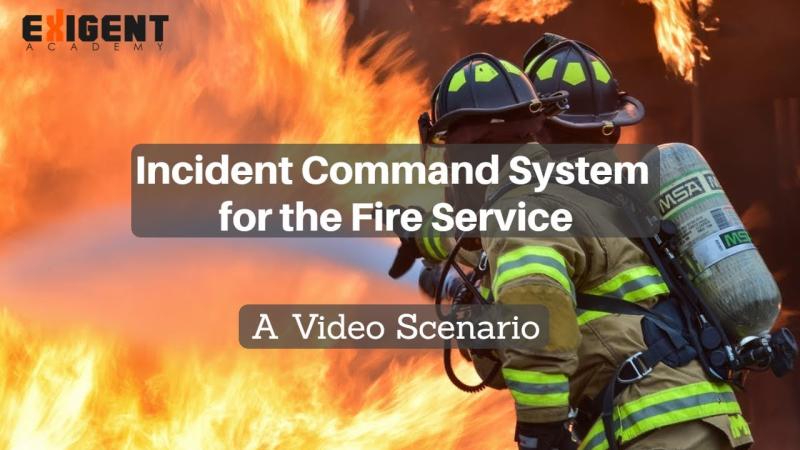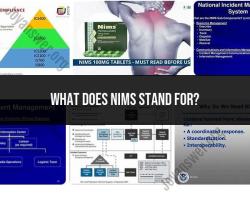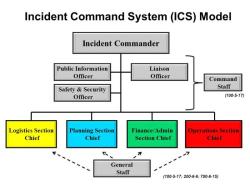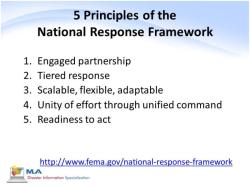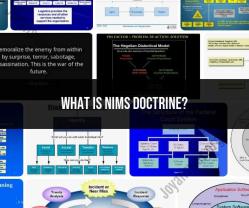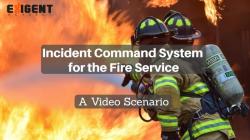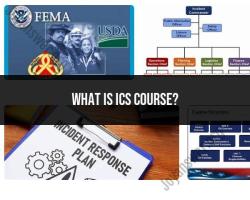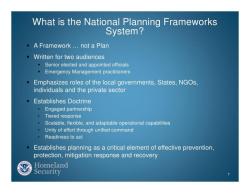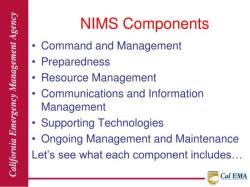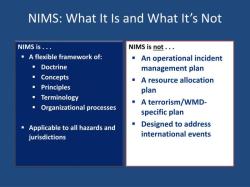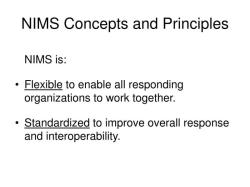What is incident command system training?
The Incident Command System (ICS) is a standardized management system used by emergency responders and organizations to coordinate and manage responses to incidents or emergencies. ICS training provides individuals with the knowledge and skills needed to effectively implement and operate within the ICS structure. The training is designed to ensure a coordinated and efficient response to incidents of varying sizes and complexities.
Key components of ICS training include:
Introduction to ICS:
- Basic ICS training begins with an introduction to the principles, concepts, and history of the Incident Command System. Participants learn about the origins of ICS, its development, and its widespread adoption as a best practice in emergency management.
ICS Structure and Organization:
- Participants learn about the organizational structure of ICS, which includes positions, roles, and responsibilities. The system is designed to be scalable and adaptable to various incident sizes and types.
Management Functions:
- ICS training covers the key management functions within the system, including Incident Commander, Operations, Planning, Logistics, and Finance/Administration. Each function has specific responsibilities and plays a critical role in managing incident response.
Incident Command Position Descriptions:
- Participants become familiar with the specific duties and responsibilities of each position within the ICS structure. This includes understanding the chain of command, reporting relationships, and communication protocols.
Unified Command:
- ICS emphasizes the importance of a unified and coordinated approach to incident management. Participants learn how to establish a Unified Command when multiple agencies or jurisdictions are involved in the response.
Incident Action Plans (IAPs):
- ICS training includes guidance on developing, implementing, and updating Incident Action Plans. An IAP outlines the response objectives, strategies, and tactics for managing the incident.
Communication and Information Management:
- Effective communication is a cornerstone of ICS. Training covers communication protocols, information flow, and the use of standardized forms and terminology to facilitate clear and efficient communication among responders.
Resource Management:
- ICS training addresses the effective use and management of resources, including personnel, equipment, and facilities. This involves resource allocation, tracking, and demobilization as the incident evolves.
Coordination with Partner Agencies:
- Participants learn how to coordinate and collaborate with other agencies, organizations, and stakeholders involved in the incident response. This includes understanding the roles of local, state, and federal agencies.
Simulations and Exercises:
- ICS training often incorporates simulations and tabletop exercises to provide participants with hands-on experience in applying ICS principles to realistic scenarios.
Qualifications and Certification:
- ICS training may offer qualifications and certifications for participants who demonstrate proficiency in the system. Certifications are often based on completion of specific training courses and successful participation in exercises.
ICS training is crucial for emergency responders, public safety personnel, and individuals who may be involved in incident management. The goal is to ensure a standardized and coordinated approach to emergency response that can be applied across different agencies and jurisdictions. Many emergency management agencies and organizations offer ICS training courses at various levels, such as ICS 100, ICS 200, ICS 300, and ICS 400, each designed to address different aspects of incident management.
Exploring Incident Command System (ICS) Training:
The Incident Command System (ICS) is a standardized approach to managing emergencies and complex events. ICS training equips individuals with the knowledge and skills to effectively and efficiently coordinate resources in response to various situations, from natural disasters to man-made incidents.
Here's a closer look at ICS training:
1. Types of ICS Training:
- Introductory Courses: These basic courses provide an overview of ICS principles, structure, and roles. Examples include IS-100 (Introduction to ICS) and IS-200 (ICS for Single Resources and Initial Action Incidents).
- Intermediate Courses: These courses delve deeper into specific functional areas of ICS, such as planning, operations, logistics, and finance/administration. Examples include IS-300 (Intermediate ICS for Expanding Incidents) and IS-400 (Advanced ICS for Command and General Staff).
- Specialized Courses: These courses focus on specific types of incidents or disciplines, such as hazardous materials management, wildland firefighting, or emergency medical services. Examples include G-200 (ICS for Public Health Incidents) and IS-700 (National Incident Management System, An Introduction).
2. Importance and Applications of ICS Training:
- Enhanced Response Effectiveness: ICS training provides a common language and approach for responders from different agencies and disciplines, streamlining cooperation and improving overall response efficiency.
- Improved Leadership and Management: Individuals learn to effectively manage resources, personnel, and information during critical situations, contributing to better decision-making and resource allocation.
- Increased Safety and Security: Implementing a standardized system promotes safety for responders and the public by ensuring coordinated actions and minimizing communication errors.
- Career Advancement: ICS training and certifications can enhance your resume and increase your competitiveness for leadership roles in emergency response and related fields.
3. Certification and Accreditation in ICS Training:
- Certification: Upon successful completion of approved ICS courses, you can earn certificates like IS-100 or IS-200. These certificates validate your understanding of ICS principles and are often required for specific positions or deployments.
- Accreditation: Training programs are accredited by organizations like the Federal Emergency Management Agency (FEMA) to ensure they meet established standards and quality guidelines. Look for accredited programs to guarantee credible and recognized training.
Resources for ICS Training:
- FEMA Training: https://training.fema.gov/emi.aspx
- National Wildfire Coordinating Group: https://www.nwcg.gov/
- State and local emergency management agencies: Many offer ICS training programs for residents and professionals.
Remember: ICS training is not just for first responders. It can be valuable for anyone involved in coordinating resources or managing complex situations in various fields, including healthcare, education, or business continuity. Investing in ICS training can equip you with valuable skills and knowledge applicable in multiple scenarios.
Feel free to ask further questions about specific ICS courses, certification requirements, or training resources relevant to your area or interests. I'm here to help you navigate the world of ICS training and explore its potential benefits for your career and personal development.
